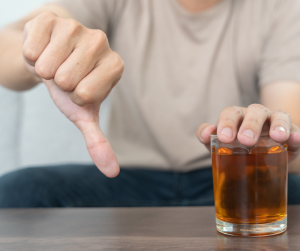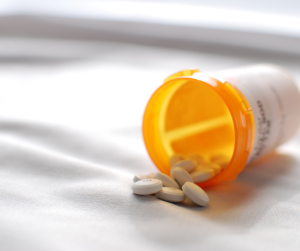Knowing your alcohol limits over Chistmas
A study by DrinkAware shows that 61% of drinkers in the UK overindulge during the festive season.
With Christmas parties, office dos and gifts of wine, beer, and spirits, it can be difficult to avoid alcohol at this time of year.
However, overconsumption of alcohol can have long-term effects on your physical and mental health. In this article, we’ll explore setting limits on how much you drink this Christmas.
Drinking guidelines
It’s easy to get carried away with drinking over Christmas and New Year.
However, it’s important to remember that adhering to alcohol guidelines, which recommend men and women drink no more than 14 units a week, can significantly benefit your health and wellbeing.
If you drink as much as 14 units a week:
- spread your intake evenly over three days or more
- don’t ‘save’ your units to binge at a particular time
Binge drinking poses a serious health risk and can damage the liver, heart, brain and stomach.
Find out more about alcohol units and their impact here.
Tips for managing your drinking
There are many ways to manage your alcohol intake during the holidays. Here are our top tips for keeping your drinking under control:
Eat

Eating before or while drinking slows alcohol absorption and can help you avoid getting drunk too quickly. Food also helps your body manage alcohol more efficiently. Remember, drinking on an empty stomach can damage your liver, kidneys, and cardiovascular and digestive systems.
Avoid salty snacks if you can – they make you thirsty.
Say No

Friends and family may encourage you to drink more at Christmas and New Year. It’s important to be assertive and avoid being pressured into drinking more than you would like.
Avoid rounds and kitties so you can drink at your own pace. Know your limits and stick to them.
It’s okay to say that you’ve had enough.
Keep busy

Staying busy over the festive period can help you avoid the urge to drink.
Try doing something productive rather than sitting and drinking. From wrapping presents and preparing food to decluttering and hanging decorations, there are plenty of activities to distract you from alcohol throughout December.
Know your measures

Drinks served at a party or at home are often larger than standard measures. Try to monitor your intake, and refuse top-ups until you’ve finished your drink.
Pour your own drinks and enjoy them slowly by sipping rather than gulping.
Alternate your drinks

Try alternating alcoholic drinks with water or non-alcoholic beverages. There are plenty of enjoyable 0% alcohol drinks available these days, and nobody needs to know if your drink is alcohol-free.
Remember to add plenty of mixers such as cola, tonic or lemonade to your drinks so they last longer.
Don’t mix alcohol with other drugs

Mixing alcohol with other drugs, including prescription medication, can be extremely dangerous, causing severe reactions in your body. It’s important to be cautious and avoid such combinations at all costs.
As well as negatively impacting physical and mental health, drinking too much can make you lose your inhibitions and affect your judgement.
Overconsumption of alcohol can cause you to do things you wouldn’t typically do and might regret, such as fighting, public disorder, or falling. You may also be inclined to take more sexual risks, such as not using protection. This increases your chances of getting a sexually transmitted infection and could also lead to an unplanned pregnancy.
Plan for the possibility of sex, and carry condoms.
Mental health
Alcohol also affects your mental health and emotional wellbeing. Many of us feel down over Christmas and New Year and turn to drinking as an escape.
Find advice on managing your mental health this winter, so you can manage your alcohol intake and still feel festive.
_________________________________________________________________________________________
If you or someone you know is struggling with alcohol use disorder, remember that there are healthcare professionals, such as doctors, therapists, and counsellors, who can provide the necessary support and guidance to overcome this condition.
It’s essential you choose what’s right for you. These sites have information on the available options.
You can call YMCA Together’s rehab service on 0151 474 0685 and find information about your local service here.
If you’re a friend or family member impacted by a loved one’s alcohol issues, you can find help and support here.
*source – DrinkAware
